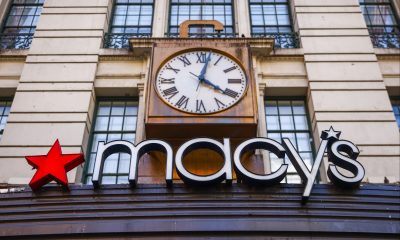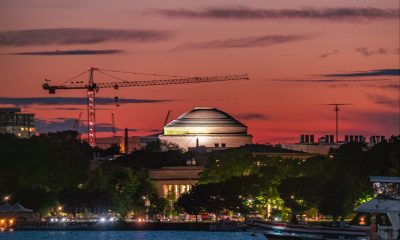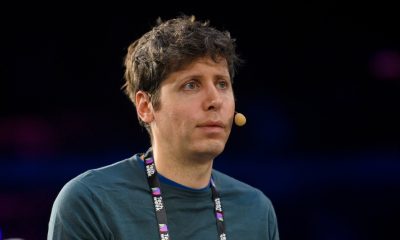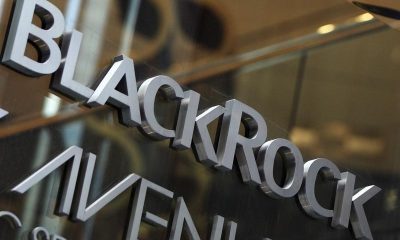Investing
Russian billionaires see wealth rise to over half a trillion dollars -Forbes

© Reuters. FILE PHOTO: Russian billionaire Andrei Melnichenko attends a session during the Week of Russian Business, organized by the Russian Union of Industrialists and Entrepreneurs (RSPP), in Moscow, Russia February 9, 2018. REUTERS/Sergei Karpukhin/File Photo
2/2
By Guy Faulconbridge
MOSCOW (Reuters) – Russia’s richest people added $152 billion to their wealth over the past year, buoyed by high prices for natural resources and rebounding from the huge loss of fortunes they experienced just after the Ukraine war began, Forbes Russia said.
Russia has 110 official billionaires in the list, up 22 from last year, according to Forbes’ Russian edition, which said their total wealth increased to $505 billion from $353 billion when the 2022 list was announced.
The list would have been longer had not five billionaires – DST Global founder Yuri Milner, Revolut founder Nikolay Storonsky, Freedom Finance founder Timur Turlov, and JetBrains co-founders Sergei Dmitriev and Valentin Kipyatkov – renounced their Russian citizenship, Forbes said.
“Last year’s rating results were also influenced by apocalyptic predictions about the Russian economy,” Forbes said, adding that the total wealth of Russia’s billionaires was $606 billion in 2021, before the war began.
After President Vladimir Putin ordered troops into Ukraine on Feb. 24 last year, the West imposed what it casts as the most severe sanctions in modern history on Russia’s economy – and some of its richest people – in an attempt to punish Putin for the war.
Putin said the West was trying to destroy Russia and has repeatedly touted the failure of Western sanctions to destroy the Russian economy, or even stop Western luxury goods – let alone basic parts – from ending up in Russia.
Russia’s economy shrank 2.1% in 2022 under the pressure of Western sanctions, but it was able to sell oil, metals and other natural resources to global markets, in particular to China, India and the Middle East.
The International Monetary Fund this month raised its forecast for Russian growth in 2023 to 0.7% from 0.3%, but lowered its 2024 forecast to 1.3% from 2.1%, saying it also expected labour shortages and the exodus of Western companies to harm the country’s economy.
The price of Urals oil, the lifeblood of the Russian economy, averaged $76.09 per barrel in 2022, up from $69 in 2021. Fertiliser prices were also high last year.
Andrei Melnichenko, who made a fortune in fertilisers, was listed as Russia’s richest man by Forbes with an estimated worth of $25.2 billion, more than double what he was estimated to be worth last year. Melnichenko could not be reached for immediate comment on the Forbes ranking.
Vladimir Potanin, president and biggest shareholder of Nornickel, the world’s largest producer of palladium and refined nickel, was ranked as second richest in Russia with a fortune of $23.7 billion. Potanin could not immediately be reached for comment on the Forbes ranking.
Vladimir Lisin, who controls steelmaker NLMK and was ranked last year as Russia’s richest man, was placed third in the Forbes Russia list with a fortune of $22.1 billion. Lisin could not be immediately reached for comment on the Forbes ranking.
Many Russian billionaires cast Western sanctions as a clumsy, and even racist, tool.
Building fortunes as the Soviet Union crumbled, a small group of tycoons known as the oligarchs persuaded the Kremlin under late President Boris Yeltsin to give them control over some of the biggest oil and metals companies in the world.
The privatisation deals often propelled the tycoons into the league of the world’s super rich, earning them the enduring dislike of millions of impoverished Russians.
But under Putin, some of the original oligarchs, such as Mikhail Khodorkovsky and Boris Berezovsky, were stripped of their assets, which eventually ended up under the sway of state companies often run by former spies.
New Russian names in the Forbes list include billionaires who made their money in snacks, supermarkets, chemicals, building and pharmaceuticals, indicating that Russian domestic demand has remained strong despite the sanctions.
Read the full article here

-

 Investing4 days ago
Investing4 days agoThis All-Access Pass to Learning Is Now $20 for Black Friday
-

 Passive Income4 days ago
Passive Income4 days agoHow to Create a Routine That Balances Rest and Business Success
-

 Side Hustles5 days ago
Side Hustles5 days agoApple Prepares a New AI-Powered Siri to Compete With ChatGPT
-

 Side Hustles2 days ago
Side Hustles2 days agoA Macy’s Employee Made Accounting Errors Worth $132 Million
-

 Side Hustles6 days ago
Side Hustles6 days agoMIT Gives Free Tuition For Families Earning $200,000 or Less
-

 Passive Income5 days ago
Passive Income5 days agoCustomers Want More Than Just a Product — Here’s How to Keep Up
-

 Side Hustles4 days ago
Side Hustles4 days agoGift the Power of Language Learning with This Limited-Time Price on Babbel
-

 Investing1 day ago
Investing1 day agoFactbox-How Trump can overhaul US financial regulators when he takes office By Reuters


















